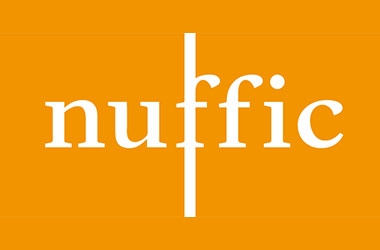Chinese Students Applying for Dutch HEIs Now Exempt from Nuffic Certificate Requirement

Policy Abolished by Dutch Government after Nearly 20 Years in Place
The Dutch government has recently eliminated a bureaucratic procedure that required Chinese students wanting to study in the Netherlands to obtain a Nuffic certificate before they could apply for a long-stay visa (MVV). The measure had been in place for almost 20 years, since February 2004, with the stated purpose of ensuring that applicants from China possessed a sufficient level of English to pursue English-language programmes at Dutch schools.
However, this policy had been considered discriminatory since no students of other nationalities were required to obtain the Nuffic certificate prior to submitting their applications. Moreover, the Code of Conduct for International Students in Dutch Higher Education, implemented in 2006, already establishes English-language requirements for international students who want to pursue their education in the Netherlands.
President of Wittenborg Peter Birdsall explained that the numbers of Chinese students moving to the Netherlands to study saw a significant increase between the late 1990s and early 2000s. Back then, Dutch higher education institutions were not prepared to deal with such a large influx, and there were no regulations in place regarding the required level of English language proficiency for international students.
“It was around that time that the Netherlands Education Support Offices (NESOs) were set up to provide support to Nuffic, the Dutch organisation for internationalisation in education. The first official NESO was opened in Beijing, in the summer of 2000, to promote Dutch higher education institutions in China. Because the number of Chinese students coming to the Netherlands was rising very rapidly and many of them could not speak English well enough back then, the Dutch government decided to implement this screening policy in line with the concerns of the immigration services,” Birdsall highlighted.
According to the president of Wittenborg, that was the first statutory requirement introduced by the Dutch higher education system concerning an English proficiency level. At the time, Chinese students had to go to NESO Beijing to go through the process, which checked the validity of their English-language certificates – such as TOEFL and IELTS – as well as their high school diplomas and other documents.
Despite the introduction of the Code of Conduct for International Students in Dutch Higher Education in 2006, which established English-language requirements for students of all nationalities, this measure remained in place.
“For this reason, we at Wittenborg saw this policy as discriminatory toward Chinese students, and we did complain to the Ministry of Education, Culture and Science of the Netherlands many times over the years. We also had doubts about whether NESO was being fair in its treatment of the different schools because there were reports that the NESO office in Beijing might be encouraging students to go to public higher education institutions, and specifically research universities. So, we had multiple meetings with the office’s different directors over the years in Beijing, which confirmed that there was a dramatic drop in students heading to applied sciences universities, and a significant growth of those enrolling in Dutch research universities.” Birdsall points out.
In 2018, Wittenborg first complained to the Minister about the use of so-called pathway programmes by research universities in the Netherlands, to recruit unqualified Chinese students. In 2023 the current minister has finally stated that the pathway programmes (Navitas, OnCampus, StudyGroup) should be closed in the Netherlands.
Changing Context
Over the last three years, in order to reduce costs, Nuffic has been requested by the (Dutch) Ministry of Education to gradually close all of the NESOs – these offices will be completely phased out by the end of 2023. Following the closure of NESO China in 2021, Chinese students' applications for the certificate were processed in the Netherlands directly by Nuffic.
Finally, in mid-2023, the Dutch government quietly abolished the policy and exempted Chinese students from the certificate requirement. Birdsall highlights that in addition to the end of NESO, the fact that China has evolved to become a developed country in many aspects also influenced the government’s decision.
“For over 20 years, this policy was seemingly used as a way to control and direct Chinese applicants, but as time passed it lost its purpose. China has developed significantly and now it is not a country one has to be worried about when it comes to mass immigration. We are extremely pleased that the Dutch government has finally decided to give up this very discriminatory regulation for Chinese students wanting to study in the Netherlands. It is a positive move, finally, after all these years,” the president of Wittenborg concludes.
WUP 15/9/2023
by Ulisses Sawczuk
©WUAS Press